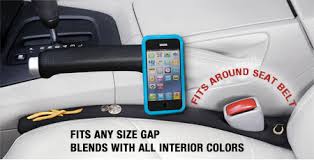
As soon as a child enters their pre-teen stage – or maybe even before – they begin counting the days until they’re old enough to learn to drive.
They yearn for independence that driving symbolizes.
Parents want to ensure that their teens remain safe. Share these tips with your teen driver; this list will help them with the skills they need to drive more responsibly.
1. Begin by buckling up before you even start the car and always wear a seat belt.
2. Insist that everyone riding in your car wear their seat belts.
3. Adjust the seat and mirrors before starting the car. This will enable you to drive a comfortable distance from the pedals and steering wheel. It will also ensure that you can see around yourself and the car clearly.
4. Never drive while you’re sleepy. Research has shown that teenagers need more sleep than adults and younger children (at least nine hours each night). Unfortunately, the average teen only gets seven hours of sleep per night. If you’re able to get the nine hours of sleep you need, you’ll be able to stay much more alert while driving.
5. Most states have a ‘zero tolerance’ policy when it comes to teenage drinking. Drinking and driving is the surest way to lose your license, face heavy fines, go to jail, cause the death of others, or possibly die yourself. The best way to avoid being involved in an alcohol-related accident is not to drink and drive or get into the car with a drunk driver.
6. Pay attention to the speed limit when driving. Many teens feel that they’re invincible and drive too fast. There are so many highly preventable teen accidents and fatalities each year. Speeding, alcohol use, and lack of experience are contributing factors.
7. Drive to be seen by other drivers. Turn on your headlights and you’ll ensure other drivers will see you. If you don’t drive with your headlights on at all times, be sure to turn them on well before natural daylight begins fading.
8. Focus on driving. If you enjoy listening to music, turn the radio on, set the station, and leave the radio buttons alone. Don’t change the stations. Keep your hands on the wheel and your eyes on the road.

9. Buy yourself – or ask your parents to buy you – a Drop Stop, a “stuff-catcher” that fits in the gaps around your seat and prevents you from losing items under your seat that you might feel the need to reach for while driving.
10. Eating can also cause you to lose focus on driving. If you’re hungry you can always eat in your parked car.
11. Leave your cell phone alone while driving. Talking on the phone can divert your attention from driving and you could have an accident. If you text and drive, your chances of having an accident increase dramatically. If you must use your phone, pull off to the side of the road, make your call, and then hang up before getting back on the road.
12. Limit the number of friends riding in the car with you. Ask them to keep their voices down so you can concentrate on driving. If they get too rowdy, tell them you can’t allow them to ride with you any longer. It may put a kink in your friendship but at least you won’t have to deal with their antics.
13. Drive with the proper four-second distance between you and the vehicle in front of you. Driving too close to the vehicle in front can mean you won’t have time to stop if they have to stop quickly.

